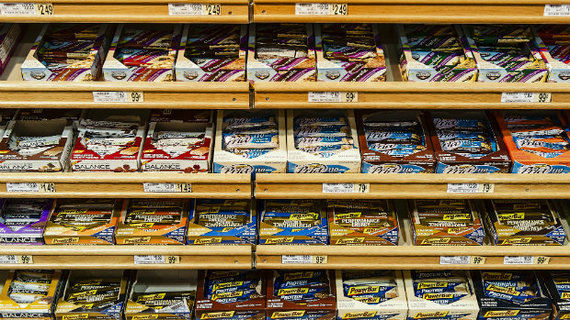By Samuel Blackstone for DETAILS.
Running on an empty stomach can be good for burning fat, but run for too long with nothing in your system and your body can start chomping away at those hard-earned muscles, too. Grabbing a quick snack before a run, if done correctly, can prevent your body from not only eating away muscle, but slowing your metabolism, dropping your blood sugar, and zapping your energy. But with so many options out there, it's easy to become overwhelmed. That's why we asked Sarah Evans, a NASM-certified personal trainer, RRCA-certified running coach, an ultramarathoner, Ironman finisher, and Boston Marathon qualifier, to give us some help.
Go With the Combo
Evans recommends a combination of carbohydrates and protein to help sustain energy levels throughout your run. A few ideas:
- Oatmeal made with water, a splash of whole milk, and some almond butter
- Toast with almond butter or peanut butter
- If almond or peanut butter is too heavy, toast with jelly, banana, or honey plus a little whole Greek yogurt works well.
Don't Go Big
Anything over 300 calories starts becoming more of a meal than a snack, so be sure not to take in too many calories or anything too heavy. If the snack doesn't feel like enough, a big cup of coffee, especially before a morning run, is a great addition. Aside from waking you up in the morning, the benefits of drinking a cup of joe before a workout are well documented.
Read more: 6 Ways to Run Better, Faster, Stronger
Leave Some Time
The amount of time you need between snack time and run time varies from person to person. A 30-minute buffer works great for Evans, but many people suffer from cramps if they don't wait at least 45 minutes to an hour. The only way to find out what works for you is to go out there, try it, keep track of the results, and find your happy zone. If you run in the morning, Evans recommends eating as soon as you wake up, then preparing for the run and the day. By the time you're done prepping, you will have given yourself enough time to digest and will be ready to hit the road. If you run later in the day, Evans suggests eating frequent but light meals throughout the day, then consuming the snack before your run. That way, you won't feel "heavy" and lethargic from a big meal before your run.
Don't Forget About the Post-Run Snack
"Eating within 30 minutes after a workout or run is key to recovery," Evans advises. But what, exactly, should you eat or drink? Don't worry, we've got you covered. How about a protein shake, some beef jerky, or a list of our seven best foods and drinks to consume after a solid workout. Yeah, we thought you'd like that.
More from DETAILS:
___________________
Also on The Huffington Post:

